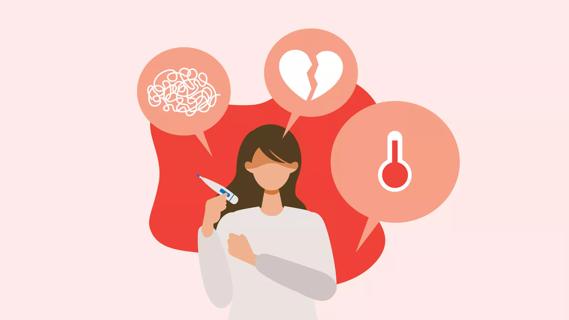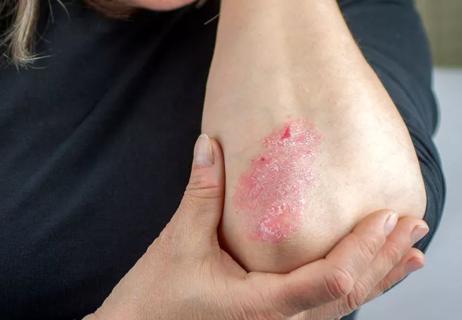Fill your coping toolbelt with healthy skills like getting outside, writing in a journal, volunteering, laughing or talking with a friend

In a world where stress is around every corner — you’ve missed your work deadline, your kid forgot their soccer cleats at home, you’re in the middle of a divorce or caring for your elderly parents — it can be helpful to have coping mechanisms.
Advertisement
Cleveland Clinic is a non-profit academic medical center. Advertising on our site helps support our mission. We do not endorse non-Cleveland Clinic products or services. Policy
The good news? You’re probably using a handful of coping mechanisms each day to help navigate stressful moments and manage your emotions.
But are your coping mechanisms healthy or unhealthy?
Psychologist Brianne Markley, PhD, shares the different types of coping mechanisms and which strategies can help you cope.
“A coping mechanism is a strategy or a technique someone might use to navigate stressors. To put it simply, coping helps us deal with difficulties,” explains Dr. Markley. “Coping mechanisms work because they allow us to be responsive to stress, rather than to just experience the stress with no defense.”
Stress can cause a whole host of symptoms such as exhaustion, muscle tension, high blood pressure, panic attacks, anxiety and depression.
“Someone might need to use several coping mechanisms when dealing with stress, discomfort, uneasiness, uncertainty — you name it,” she continues. “We often think of coping as a way to respond to either psychological or physiological concerns.”
When it comes to how we cope, we can either use “active coping” or “avoidant coping.”
“Active coping means you’re working to address a concern in a direct, head-on manner. For example, if you’re managing a stressor at work or school, an active coping strategy would be to brainstorm possible resolutions and then work from there to resolve the problem,” explains Dr. Markley.
Advertisement
“Whereas with avoidant coping, you may distract yourself from your concerns or ignore or minimize your problems in an effort not to face it. It’s like putting a band-aid on a wound. While it might offer some temporary relief, it’s likely not going to be helpful or effective in the bigger picture.”
You can also think of the different types of coping mechanisms through the lens of “adaptive coping” vs. “maladaptive coping.” Think of adaptative coping mechanisms as positive or healthy coping skills and maladaptive coping mechanisms as negative or unhealthy coping skills.
From there, coping mechanisms can fall into three styles:
“The first step in focusing on using healthy coping is to know the difference between healthy and unhealthy coping, to be able to identify which skills are more adaptive or less adaptive,” says Dr. Markley.
It’s also important to know not every skill will work in every situation.
“It’s imperative to not only have a variety of coping skills, but to be able to adapt your coping skills in certain circumstances,” she adds. “From there, it also helps to be self-reflective and examine how you’ve been doing at navigating stressors in your life.”
While there are many healthy coping mechanisms, Dr. Markley shares some common ways to work through a stressful situation.
Advertisement
“Maladaptive coping is an unhelpful way to attempt to address stressors,” clarifies Dr. Markley. “With maladaptive coping, you’re responding in some way, but it might not be the most effective strategy that you could utilize to resolve your concern or cope through it.”
Examples of unhealthy coping mechanisms may include:
“There are certain factors that can contribute to an increase in maladaptive coping. For example, elevated and persistent levels of physiological or psychological distress can lead to less adaptive coping,” she says. “If you’re constantly bombarded, whether by psychological stress or physiological stress, it can make it really difficult to engage in the fight against your stressor by using healthy coping mechanisms.”
While these unhealthy coping mechanisms may provide temporary relief, it isn’t dealing with the problem, so your problem is likely to reoccur. Dr. Markley points out that using unhealthy coping mechanisms may also mean you end up creating more issues for yourself.
Advertisement
“It can actually multiply problems and create a complicated and compounding series of stress for people,” she warns. “Maladaptive coping may negatively impact your mental health and your physical health at times. It can also impact your relationships or ability to engage with others effectively.”
It can pay off to have a variety of healthy coping skills as you head through life.
“We need a well-equipped tool belt of coping skills because stressors are going to look and feel different. They’re going to impact you and affect you differently,” emphasizes Dr. Markley.
“When you have a good tool belt of different coping skills to choose from, you’re more likely to be flexible and responsive to a particular stressor. Healthy coping skills allow us to be responsive, rather than to experience a stress with no defense.”
And in some cases, if you feel like you’re turning to unhealthy coping mechanisms or are finding it hard to get relief from the healthy coping mechanisms you use, it’s OK to talk to a healthcare provider or a mental health professional.
“Coping can be a tricky business and sometimes, it’s difficult to navigate on your own. It may seem simple, but the amount of stress, the weight of the stress, the pervasiveness of the stress — all those factors can intensify the role of coping,” relates Dr. Markley. “If you feel like you’re coping unhealthily, or that you don’t have the skills you need to cope effectively, that’s a good time to reach out for professional support.”
Advertisement

Sign up for our Health Essentials emails for expert guidance on nutrition, fitness, sleep, skin care and more.
Learn more about our editorial process.
Advertisement

Even small moments of time outdoors can help reduce stress, boost mood and restore a sense of calm

We all experience some stress from time to time, but chronic stress can contribute to health issues like diabetes and cardiovascular disease

Getting outside, eating a healthy diet, taking up journaling, listening to music — even cuddling a pet — can provide stress relief

Give these 30+ grocery items a try to help find relief

In response to stress or danger, your brain responds by either defending itself, running away, stopping or reconciling

From nausea, weight gain and eczema, stress can affect your immune system in many ways

Stress hormones trigger cravings in an attempt to keep us safe from danger

From stomachaches and hives to sleepless nights and missed periods, stress can make an impact

Even small moments of time outdoors can help reduce stress, boost mood and restore a sense of calm

A correct prescription helps your eyes see clearly — but as natural changes occur, you may need stronger or different eyeglasses

Both are medical emergencies, but they are very distinct events with different causes